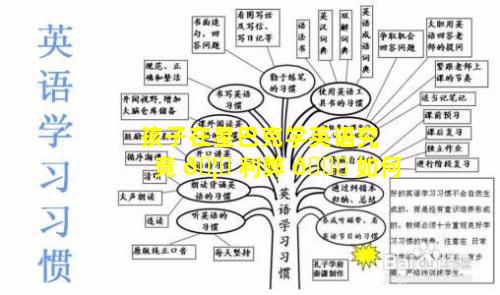养殖生物学英语究竟是怎样的学科
- 作者: 张颂沅
- 来源: 投稿
- 2024-11-30
1、养殖生物学英语究竟是怎样的学科
养殖生物学养殖生物学是一门多学科交叉的科学领域,融合了动物科学、植物学、营养学、遗传学、生理学和生态学的原理,旨在提高水生和陆生物种的生产和可持续性。
学科目标养殖生物学的主要目标包括:
理解养殖生物的生物学和生理过程
开发和完善养殖实践,以优化产量和质量
确保养殖物种的健康和福祉
减少对环境的影响,实现养殖的可持续性
主要领域养殖生物学涵盖广泛的领域,包括:
水产养殖:养殖鱼类、贝类和甲壳类等水生生物
家畜养殖:养殖牛、猪、鸡和羊等陆生动物
水耕栽培:利用水培技术养殖植物
生物技术:利用遗传工程和分子技术改善养殖物种
营养学:为养殖生物制定最佳饮食,以满足其营养需求
疾病管理:预防和控制养殖生物中的疾病
繁殖:管理养殖生物的繁殖,以提高生产力和遗传多样性
可持续性:评估和减轻养殖活动对环境的影响
相关学科养殖生物学与许多其他学科密切相关,包括:
动物科学植物学
海洋生物学
环境科学
微生物学
生化学
经济学
教育和职业
养殖生物学专业的学生通常获得动物科学、农业或相关领域的学士或硕士学位。毕业后,他们可以在以下领域从事职业:
养殖场管理研究与开发
政府监管
行业协会
饲料和药品公司
2、养殖生物学英语究竟是怎样的学科类别
养殖生物学(Aquaculture)
学科类别:生物学
动物学:研究动物的生物学、行为和习性
鱼类生物学:专门研究鱼类的生物学
水产科学:研究水生生物和水生环境的科学
农业科学:研究农业实践和技术,包括动物生产
环境科学:研究环境问题和生态系统的科学
养殖生物学的研究范围:
养殖生物学是一门综合性学科,涉及以下领域:
水产养殖物种的繁殖、生长和营养
水产养殖系统的设计和管理
水产养殖疾病的诊断和控制
水产养殖产品的加工和营销
水产养殖对环境的影响
水产养殖的经济和社会方面
养殖生物学的应用:
养殖生物学的研究成果用于:
提高水产养殖物种的产量和质量
优化水产养殖系统的效率和可持续性
管理水产养殖疾病并防止其传播
促进可持续的海鲜消费
保护水生生态系统并减轻水产养殖对环境的影响

3、养殖生物学英语究竟是怎样的学科呢
Aquaculture biology, also known as aquaculture science or aquaculture, is a discipline that encompasses the breeding, cultivation, and harvesting of aquatic organisms such as fish, shellfish, and aquatic plants, in both freshwater and marine environments.
Aquaculture biology incorporates various biological, ecological, and environmental principles to manage and improve the growth and productivity of aquatic species. It focuses on:
Reproduction and genetics: Understanding the reproductive cycles and genetic mechanisms of aquatic organisms to enhance breeding and develop new strains with desirable traits.
Nutrition and feeding: Determining the nutritional requirements of aquatic species and developing optimal feeding strategies to promote growth and health.
Disease management: Identifying and mitigating diseases and parasites that affect aquatic organisms, ensuring their welfare and preventing disease outbreaks.
Water quality and environmental management: Monitoring and regulating water quality parameters such as pH, temperature, dissolved oxygen, and pollutants to create optimal conditions for aquatic life.
Aquaculture engineering: Designing and optimizing aquaculture systems, including enclosures, recirculating aquaculture systems (RAS), and flowthrough systems, to ensure efficient and sustainable production.
Economics and sustainability: Evaluating the economic viability and environmental impact of aquaculture practices, ensuring sustainable and profitable operations.
Aquaculture biology plays a crucial role in meeting the growing global demand for seafood and providing nutritious food sources. It also contributes to economic development and job creation, particularly in coastal communities.
Moreover, aquaculture biology addresses issues related to overfishing, habitat degradation, and the preservation of aquatic biodiversity, ensuring a sustainable future for both wild and farmed aquatic species.
4、养殖生态学基本概况
养殖生态学基本概况
定义养殖生态学是研究养殖环境中生物与其无机和有机环境之间的关系的一门学科。它涉及对养殖系统中物种之间、物种与环境之间的相互作用、能量流和物质循环的研究。
研究范围养殖生态学研究的范围包括:
养殖环境的物理和化学特征(水温、溶解氧、pH值、营养物质)
养殖物种的生物学和生态学(生长、繁殖、行为、营养)
养殖系统中不同物种之间的相互作用(竞争、捕食、共生)
养殖系统与周围环境的相互作用(废物排放、营养富集)
养殖系统可持续性管理策略
主要目标养殖生态学的主要目标是:
了解养殖系统中生物和环境之间的动态关系
优化养殖物种的生长和产量
减少养殖活动对环境的影响
促进养殖业的可持续发展
研究方法养殖生态学研究使用各种方法,包括:
现场观测和监测实验和控制研究
建模和模拟
数据分析和解释
应用
养殖生态学的研究成果广泛应用于:
养殖物种的选择和管理
养殖系统的设计和优化
养殖环境的改善和监测
养殖废物管理养殖业可持续性政策制定




